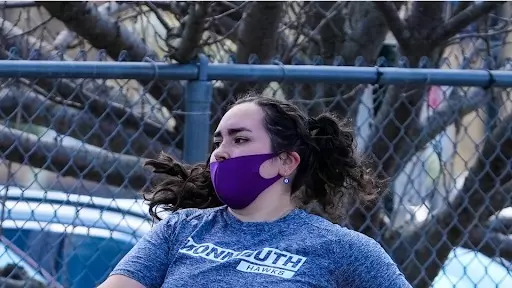College athletes lead demanding lives, balancing rigorous academic schedules with intense trainings and competitions. To excel in both, it is imperative for young athletes to understand the importance of proper rest and recovery. Rest and recovery are not just luxuries, but essential components of athletic success, enabling athletes to perform at their peak, prevent injuries, and maintain their overall health and well-being. In this article, we will dive into the significance of rest and recovery for college athletes and provide practical tips to optimize their athletic performance.
1. The Science of Rest and Recovery
Rest and recovery encompass various practices that allow the body and mind to heal, replenish, and adapt following periods of strenuous physical and mental exertion. During intense workouts and competitions, athletes experience muscle breakdown and depletion of energy stores, resulting in physical fatigue and mental exhaustion. Without adequate recovery, these conditions can lead to performance plateaus, overtraining syndrome, and even injuries.
2. Sleep: The Foundation of Recovery
Sleep is the foundation of rest and recovery. During sleep, the body undergoes essential restorative processes, such as muscle repair and the release of growth hormones. College athletes should aim for 7-9 hours of quality sleep each night to optimize physical and cognitive function. Establishing a consistent sleep schedule, maintaining a sleep-conducive environment, and practicing relaxation techniques before bedtime can dramatically improve sleep quality.
3. Active Rest and Active Recovery
Contrary to popular belief, rest does not always mean complete inactivity. Active rest and active recovery involve low-intensity activities that facilitate blood flow to muscles, promoting faster recovery. Engaging in activities like gentle stretching, yoga, or light aerobic exercises on rest days can reduce muscle stiffness, improve flexibility, and prevent overuse injuries.
4. Nutrition for Recovery
Nutrition plays a vital role in the recovery process. After intense training or competition, college athletes should focus on consuming a balanced meal that includes carbohydrates, proteins, and healthy fats. Carbohydrates replenish glycogen stores, proteins aid in muscle repair, and fats support hormone production. Additionally, staying hydrated is crucial to facilitate nutrient delivery and waste removal. Consulting a sports dietitian can help athletes develop personalized nutrition plans to optimize recovery.
5. Mindful Rest and Mental Recovery
Rest and recovery are not just about physical recuperation; they also involve mental well-being. College athletes often face academic pressures, social demands, and performance anxieties. Incorporating mindfulness practices such as meditation, deep breathing exercises, or spending time in nature can alleviate mental stress and promote overall relaxation.
6. The Role of Periodization
College athletes should also understand the importance of periodization – a structured training approach that incorporates planned periods of rest and recovery. By varying the intensity and volume of their training throughout the season, athletes can prevent burnout, reduce the risk of injuries, and optimize their performance during peak competitions.
7. Injury Prevention and Rehabilitation
Injury prevention and rehabilitation is critical for athletes. Ignoring signs of fatigue and pushing through pain can lead to more severe injuries and extended recovery periods. College athletes must listen to their bodies, recognize warning signs, and seek appropriate medical attention when needed. Regular visits to sports medicine professionals, physical therapists, and athletic trainers can help identify and address potential issues early on, preventing long-term setbacks.
Conclusion
Rest and recovery are crucial aspects of a college athlete's training regimen. By prioritizing all of the things listed above, college athletes can enhance their performance, reduce the risk of injuries, and lay the foundation for long-lasting athletic success. Emphasizing the importance of rest and recovery in college athletic programs can help young athletes not only excel in sports but also cultivate healthy habits that will benefit them for the rest of their lives.
* Originally published on August 15, 2023, by Rebecca Lutz







